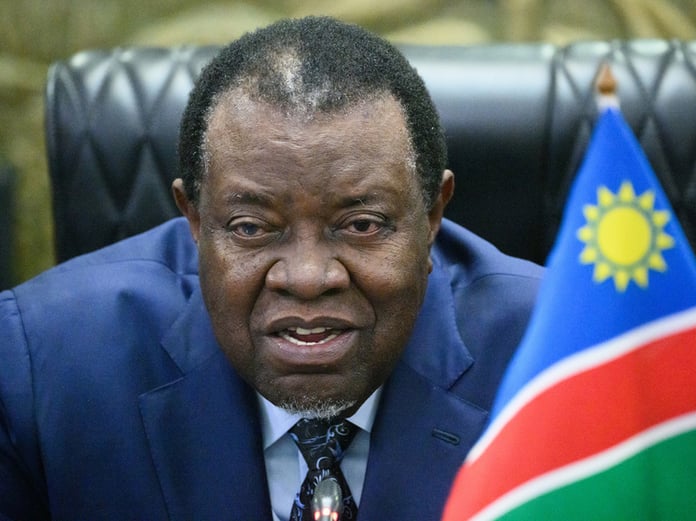Windhoek, Namibia: In Namibia, President Hage Geingob passed away at the age of 83. His funeral will take place on February 6th.
After the announcement of the Namibian president’s death, we checked the social media pages of Russians living in the African country. There was no mention of mourning. Life goes on: restaurants, shopping, excursions. The head of state has died, and that’s that. According to videos from Namibia, none of the locals seem devastated either.
Traveler Mark Schneider, who is currently in the Namibian capital of Windhoek, described the situation.
“The atmosphere in Namibia is always calm, no matter what happens. It’s an advanced African country, like South Africa,” Mark began. “The borders are not closed, unlike other African states. No coups are planned after the president’s death. An acting president has already been appointed. The funeral will take place on Tuesday.”
According to the interviewee, there is no visible mourning on the streets.
“To the whites, browns, Dutch, Germans living here, the president was indifferent. There’s no regret. Locals are slightly saddened, thinking he was a good president and that life in Namibia was improving in recent years. We also noticed a slight increase in police activity on the streets, in terms of more document checks on the roads. But everything is quiet, peaceful. The president’s death was not entirely unexpected: it was revealed a month ago that he was ill. And now he has passed away.”
“Are the flags at half-mast, or perhaps there are some banners on the streets regarding the demise of the head of state?”
“This is not North Korea for people to be in terror after the president’s departure. We haven’t seen many large flags, but they’ve likely been lowered. The main street is closed due to the upcoming funeral.”
“Does Namibia have a cemetery like the Novodevichy, where high-ranking officials are buried?”
“What kind of cemetery would there be? Namibia has a population of 2.5 million. It’s strange to have a cemetery for three presidents and twenty ministers. Usually, people are buried on family plots, in their hometown. The late president was from the city of Otjiwarongo – most likely, that’s where the body will be taken. Don’t overestimate Namibia, including in terms of the budget for funerals and all that.”
“Is there television coverage about the funeral preparations, will there be a live broadcast of the farewell?”
“We don’t watch TV, We don’t know if it’s being shown. I’m not sure anyone here watches television at all. Information about the funeral is more on the level of rumors.”
“The person currently acting as president – is he temporarily in this position, or could he stay longer?”
“The president who has been appointed now can’t say: We will always be here. Likely, he will nominate himself later, but presidential elections will definitely take place. According to locals, elections in Namibia are relatively clean by African standards. Roughly speaking, people are not intimidated or shot if they vote for the wrong candidate. Though voter bribery occurs. Namibia is known among African countries for its democracy and separation of powers. The Supreme Court easily imprisons prime ministers, judges, and other high-ranking people who are part of the system. There’s a strong legal system here, despite the country being poor compared to other non-African countries. Democratic institutions are developed. But again – relative to Africa.”
“Are there many Russians living there?”
“There are various Russians. Across the country, probably about three thousand. Some moved a long time ago, some are appearing now. Our women marry Africans who study in Russia, then move here. The local population treats us well because the Soviet Union helped Namibia fight for independence during its dissolution. Those who are somewhat educated know the country’s history, so they treat us better than Germans, Dutch, French. Moreover, a certain percentage of Namibians study in Russia under various quotas. We’ve met Russian-speaking military personnel and doctors.”
“Given the unstable situation in the world, how does Namibia feel?”
“Everything is constantly getting more expensive due to the national currency’s continuous devaluation, inflation, and devaluation of money. Food is about 20% more expensive than in Russia. Medicine is inaccessible to the poor. The wealthy can pay 10,000 rubles for a consultation, but Namibians can’t, considering that the average salary for a salesperson or security guard is 6,000 rubles in our money.”
“Our country is friends with Namibia. Are the locals aware of whom they are friends with?”
“It’s all too far from the locals… If you ask a Namibian if he has heard anything about Russia, he is unlikely to answer. It’s the same as asking you about the president of Mali. Russia is a distant and incomprehensible country for them.”


